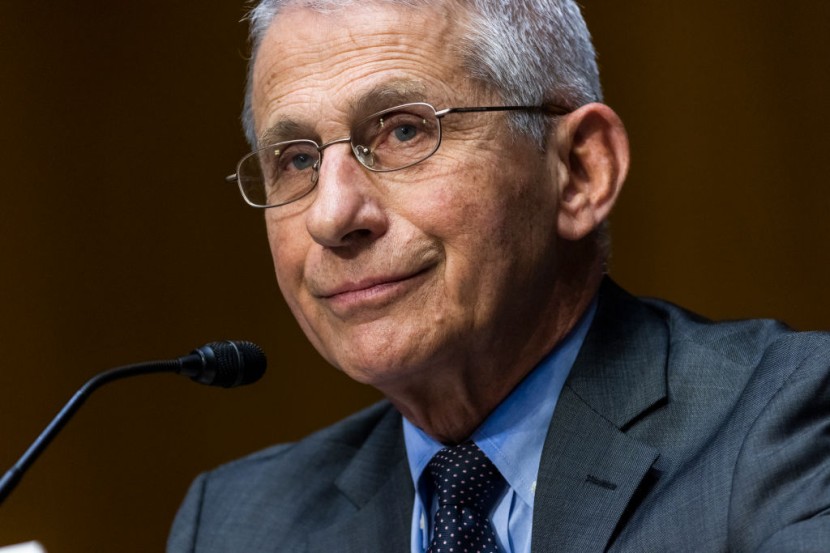
Thousands of pages of emails sent and received by Anthony Fauci at the start of the COVID-19 pandemic were revealed this week thanks to Freedom of Information Act requests. The emails provide an intimate peek at the hectic work life of the prominent infectious diseases expert in the early months of the pandemic.
When COVID-19 initially began to radically impact the US society last year, Fauci engaged with fellow authorities, colleagues, scientists, and worried Americans, according to the emails. The following are some of the most important takeaways from the emails:
Trump administration did not restrict Fauci
Several queries were posed to the nation's top infectious diseases expert, including if he was being silenced by former President Donald Trump or his administration, from medical experts and a columnist. Fauci, on the other hand, refuted any claim that the administration was limiting what he might say to the public.
Mark Shlomchik, the chair of the University of Pittsburgh's Department of Immunology, sent an email to Fauci in early March 2020 pushing him to refute allegations that he was being silenced publicly after Shlomchik established that they were not accurate. Fauci became a trusted voice in the administration as head of the National Institute of Allergy and Infectious Diseases (NIAID). But he occasionally fought with Trump and other officials, raising fears that the recognized expert might be ordered to remain silent, as per The Hill.
Experts are concerned that COVID-19 could 'look engineered'
The Scripps Research Institute's director, Kristian G. Andersen, wrote to Fauci on January 31, 2020, saying that some of the SARS-traits CoV-2's may be created. Andersen pointed out that the virus's "unique traits" only made up a small portion of its DNA.
Andersen and his colleagues then published a paper in the peer-reviewed journal Nature Medicine in which they said that no laboratory-based scenario is realistic. However, more scientific data might tip the balance of evidence to favor one explanation over another, according to the article.
Initial predictions, advice shows COVID-19 understanding
The NIAID director's emails show that early in the pandemic, his expectations, projections, and advice did not always match up with current data and suggestions, indicating that even Fauci was learning as COVID-19 appeared. Some of the emails revealed how Fauci's advice on mask use has changed throughout the outbreak.
The director of the NIAID initially advised against wearing masks, fearing that Americans would deplete the already scarce supply of face masks required by medical personnel. In February 2020, he provided the same instructions to Sylvia Burwell, the former Secretary of Health and Human Services, who inquired via email if she needed to carry a mask to the airport, claiming she would be in a "low-risk location."
Fauci is uncomfortable with celebrity status
During the pandemic, Fauci became a well-known character with a popular image that spawned articles, memes, and even merchandise. He did not like being the center of attention.
On March 31, 2020, he received an email from a colleague at the National Institutes of Health with a link to a Washington Post piece titled Fauci socks, Fauci doughnuts, Fauci fan art: The coronavirus specialist gains a cult following.
"Surreal to the point of absurdity. Hopefully, this will all come to an end soon. It's not at all nice, that's for sure," Fauci wrote in reply, Newsweek via MSN reported.
Fauci emails give more reason to divulge COVID-19 origins
Dr. Anthony Fauci was expressing skepticism on the lab-leak explanation of COVID-19 origins in the early months of the pandemic. Even though he was getting at least one warning from a genomic expert that "some of the traits appear potentially engineered."
Significantly, he distributed anti-conspiracy theory articles in which Peter Daszak, the head of a US organization that received grant money from Fauci's organization to sponsor coronavirus research at the Wuhan Institute of Virology, was reported as criticizing the lab-leak scenario. Daszak and others wrote to Fauci personally to express their gratitude for his debunking of the theory.
Meanwhile, Beijing has refused to assist in any real independent inquiry, launching a trade war with Australia after Australian officials demanded one. We have been taught for a year to believe the research, yet Fauci has declared that some theories have been "debunked" when they have not, as per NY Post.
Why would he support Daszak's self-serving rejection of the lab idea with no real proof when he had email proof to the contrary? NY Post stated these revelations add to the increasing fear that US taxpayer funds may have aided in the progression of the virus. All of this adds to the pressure on the Biden administration to solve the riddle and make getting China to cooperate at long last the top priority in discussions with Beijing.
Related Article: Fauci Emails Released: Republicans Urge Infectious Disease Expert to Testify Against COVID-19 Origins Probe
@YouTube
© 2025 HNGN, All rights reserved. Do not reproduce without permission.








